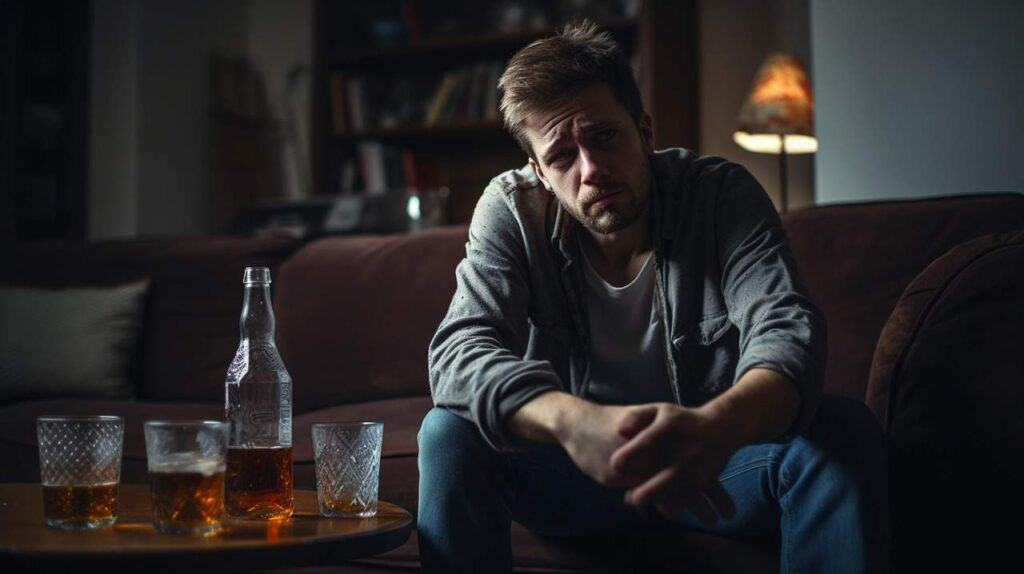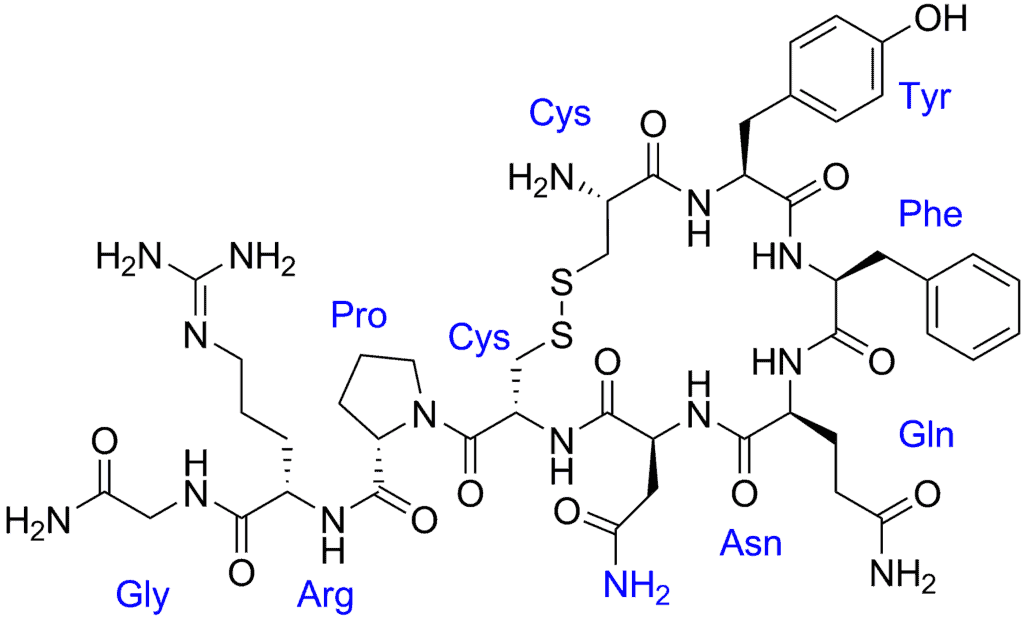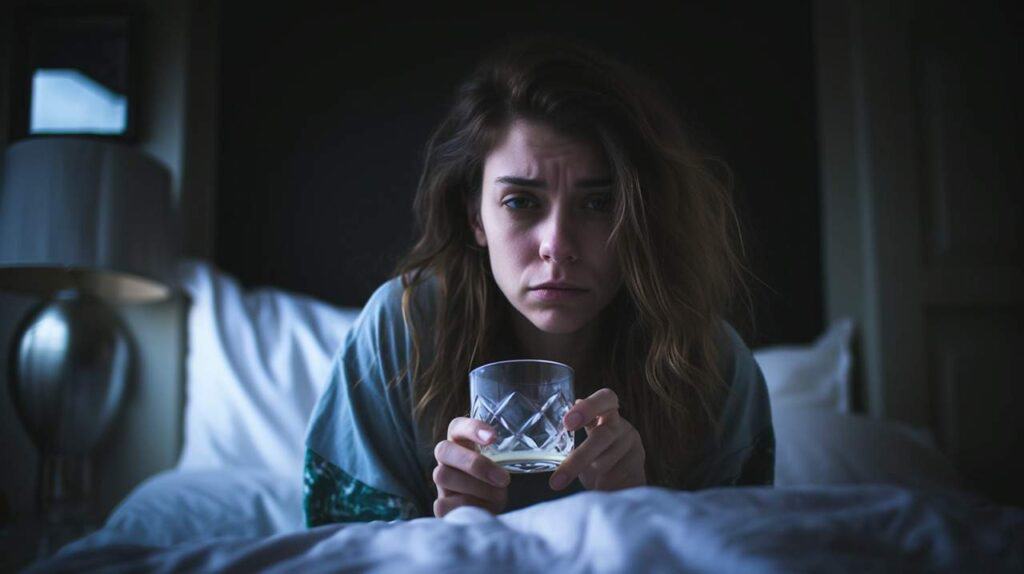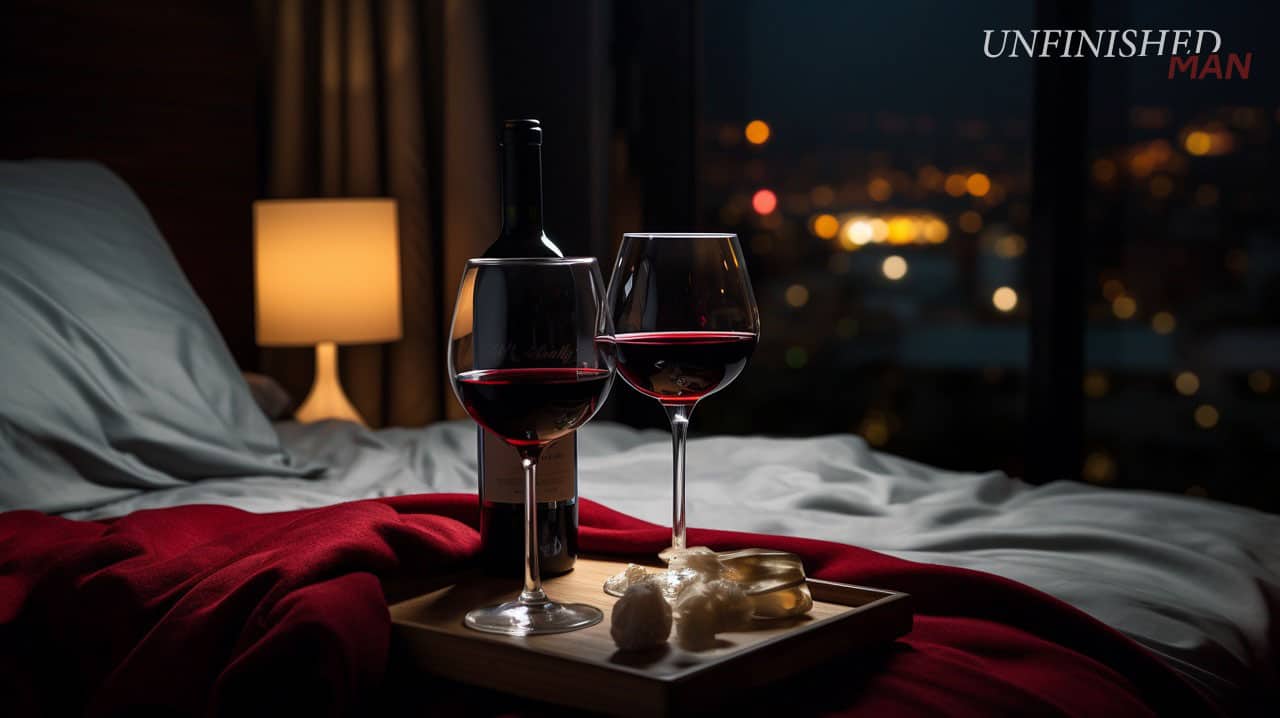Have you ever found yourself waking up to damp bedsheets, unable to recall why? Trust me, many of us have been there – facing the awkwardness of bedwetting after an evening of alcohol consumption.
I’ve taken that feeling and channeled it into hours upon hours of researching how we can better manage this uncomfortable situation. In this blog post, you’ll find a comprehensive guide exploring the connection between alcohol and bedwetting, learning preventive techniques for those pre-bedtime moments, and navigating professional help if needed.
Ready to say goodbye to such nights and hello again to dry mornings? Let’s jump in!
Key Takeaways
Lots of drinks make you pee more at night. This can lead to bedwetting. Drinking less or no alcohol can help.
Water between drinks is good advice. It cuts down on booze and stops a hangover, too! So, having water after each drink helps a lot.
Before sleeping, remember to empty your bladder. Set an alarm if needed so that you wake up for nighttime trips to the bathroom.
If we keep wetting beds even after trying all these tips, reach out to a doctor right away! There may be some bigger health issues going on that need medical attention.
Table of Contents
Understanding the Connection Between Alcohol and Bedwetting

Alcohol can lead to nighttime bedwetting, a condition known as nocturnal enuresis. This happens due to the diuretic effects of alcohol, which increases urine production in our body, and also because it numbs us into such a deep sleep state that we may not be aware of the signals sent by our bladder for an urgent need to urinate.
The fact is, when you consume alcohol liberally, your body may attempt to remove it through increased urine output, hence causing bedwetting.
The Effects of Alcohol on Bladder Function
Alcohol can mess with your bladder. It makes you pee more often. This is because alcohol lowers a body chemical called ADH. ADH tells our kidneys to make less pee when we sleep so we don’t have to wake up and go to the bathroom.

But alcohol slows down how much ADH your body makes. So, your body ends up making a lot of pee while you sleep, and this can lead to bed wetting. Plus, booze is not friendly for bladders at all! It irritates the bladder lining, making it swell, and that causes even more trips to the bathroom! Drinking less alcohol or none at all can stop this from happening.
Alcohol Induced Incontinence
Drinking too much alcohol can lead to bedwetting. This is because alcohol makes the body make more pee faster than usual. It does this by pressing on a hormone in your body named ADH.
With less ADH to slow it down, your kidneys keep making lots of urine. The end result? Your bladder fills up quickly and sometimes starts to leak while you’re still sleeping. Booze also messes with sleep signs from the brain to the bladder, so you may not wake up when you need the loo at night.
Doing things like cutting back on beer or having fewer drinks can help this issue, as well as avoid high-caffeine drinks that bug the bladder even more!
Practical Steps to Prevent Bedwetting After Drinking

Keeping your alcohol consumption in check is the first step towards reducing the odds of bedwetting. A simple yet effective tip is to intersperse your alcoholic drinks with glasses of water, aiding in diluting the intake while hydrating you.
Lastly, make it a point to empty your bladder before hitting the sack; it eases pressure on your bladder during those deep sleep cycles, hence preventing leakage.
Moderating Alcohol Consumption
Drinking less is a good way to stop bedwetting. You may love the kick you get from booze, but your bladder does not. It gets full fast, and before long, you could be peeing in bed! One fact is that alcohol stops ADH – a hormone that helps our bodies save water from being peed out.
Too much beer or liquor makes more urine than needed, filling up your bladder quickly. Cut back on the hooch, and you’ll have less pee to worry about at night time! Using my own ideas helped me deal with this problem; I still enjoyed hanging out with friends but just had fewer drinks.
Once I felt tipsy, I moved to drinking only water for the rest of the evening. This cut down how much pee my body made, as well as giving time for any extra fluid already in the system and an exit plan before hitting the sack!
Hydrating with Water Between Alcoholic Drinks
Drinking water is key when I have alcohol. It keeps me hydrated and helps lessen the chance of bedwetting. Alcohol makes my body make more pee. But water can slow that down. A good rule to follow is one glass of water for every drink of alcohol.
This trick not only cuts back on how much alcohol I’m drinking but also prevents a hangover in the morning! So next time, before going for another beer or whiskey, I reach out for a glass of water first instead.
Emptying Your Bladder Before Bedtime
Going to the bathroom before you sleep is key. It makes sure your bladder is empty. This can stop bedwetting after drinking alcohol. Make this a part of your bedtime routine.
You should also go to the bathroom in the early part of your night routine. Doing both will make sure that your bladder is fully empty when you sleep. Cutting off drinks two or three hours before bed gives time for all drink liquids to pass through.
You can set an alarm during the night, too! This wake-up call lets you get up and pee. It stops too much urine from filling up in your bladder while you sleep, which can lead to wetting the bed.
Bedwetting may mean that there’s too much drinking happening, though. If it keeps on going even with these tips, ask a doctor about it.
When to Seek Medical Attention
If your nighttime incontinence persists or you suspect underlying health issues, it’s imperative to consult a healthcare professional promptly.
Persistent Nighttime Incontinence
Bedwetting after drinking alcohol at night is a real problem. It is also called persistent nighttime incontinence. This happens when you lose control of your bladder while sleeping.
The pee just comes out on its own, wetting the bed. This can lead to awkward moments if a man wets the bed with his girlfriend next to him.
Drinking alcohol before sleep increases the chance of this happening. Alcohol messes with our bodies in many ways, and one effect is on our bladder function. It makes us pee more often by blocking Antidiuretic hormone (ADH).
Also, it wakes us up from deep sleep cycles; sometimes, we may not wake up fully, causing urine leaks without noticing until morning.
Possible Underlying Health Issues
Feeling the urge to pee a lot can hint at other health problems. For some, bedtime wetting isn’t about having too much to drink. It might be a sign that your body is fighting something else.
Diabetes can make you pass more urine and feel thirsty all the time. If it wakes you up or makes you go, it’s vital to talk with your doctor right away. Sleep apnea is another issue linked with bedwetting in men.
This happens when your breathing stops and starts as you slumber, causing micro-awakenings that leave room for bladder control issues if naturally deep sleep cycles are disturbed often enough.
Let’s not forget prostate problems either: an enlarged one forces many men into frequent midnight trips to the toilet due to its push on the bladder, while Prostate cancer – though rare – can send out signs through struggles like these, too, so don’t shrug any concerns off without checking-in with a medical expert first! Oddly enough, various medications such as benzodiazepines, risperidone, and thioridazine can throw off patches of slackened bladder function, making leaks more likely after boozing, which morphs them from magic pills into double-edged swords.
Knowing where these extra hurdles come from may just help avoid stress urinary incontinence (SUI) altogether, leaving nights dry after all
Tips for Managing Booze-Induced Incontinence
Conquering booze-induced incontinence begins with modifying your drinking habits, for instance, cutting back on the amount of alcohol consumed or switching to beverages that have less diuretic effects.
It’s also vital to build bladder control, which can be improved through techniques such as regular pelvic floor exercises and emptying your bladder before hitting the hay.
Switching to Less Diuretic Beverages
I found a good way to deal with bedwetting – move to less diuretic drinks. Diuretics make you pee more, so cut down on those. Alcohol affects your ADH hormone, which controls urine creation.
This makes your body produce too much urine when you drink alcohol. On top of that, caffeine can hurt your bladder and cause even more bathroom trips during the night! Try cutting back on caffeinated beverages while choosing alcohol-free options or low-alcohol drinks whenever possible.
Once you feel tipsy enough for the day, switch straight over to water right away instead! You will enjoy feeling refreshed without worrying about wetting the bed later after sleep kicks in.
Employing Bladder Control Techniques
To stop bedwetting, you can use bladder control techniques. Bladder training helps a lot. It means holding your pee for a bit longer each time when you feel like going to the toilet.
This method will make your bladder stronger with time. Kegel exercises are also good for men to help them hold their pee. These exercises mean tensing and relaxing the muscles that stop urine flow.
They make pelvic floor muscles stronger over time, too! A strong pelvis aids in better control of your bladder, which is just what we need, right guys? Moreover, do not forget to empty out before hitting the sack after having drinks! This tactic alone may save grace from an embarrassing situation during nighttime sleepovers or trips.
Understanding the Implications of Chronic Alcohol Abuse on Bladder Health
Chronic alcohol abuse doesn’t just pose a risk to your liver but also harms the bladder, leading to issues like an overactive bladder or incontinence. Let’s delve into how long-term heavy drinking affects your bladder health and explore some available support systems for tackling alcohol dependence.
Long Term Alcohol Abuse and Incontinence
Too much booze for a long time hurts your bladder. It can cause pee leaks that you can’t control, called incontinence. Booze makes your bladder mad and speeds up the need to pee. Over time, too much drinking weakens your bladder muscles, so they can’t hold urine anymore.
And when there’s less room in your bladder because of scarring from long-term alcohol abuse, more bathroom trips are on the cards for you, even if you’re trying hard to hold it in sleep! Drinking habits matter big time as they mess with how our body handles fluid balance, making bedwetting after boozing a common issue among men who consume alcohol overboard routinely.
Available Support and Treatment Options for Alcohol Abuse
I know firsthand how tough it is to deal with alcohol abuse. It’s important to reach out if you need help. There are many ways to get support and treatment, such as:
- Therapy sessions: Talk to someone who can guide you in your recovery. This can be a skilled person like a therapist or counselor.
- Support groups: They can offer comfort in shared experiences. You do not have to face this battle alone.
- Cognitive-behavioral therapy (CBT): This method helps change the thinking that drives you to drink.
- Medical aid: Doctors might give anticholinergic drugs for bladder issues if you have been drinking alcohol for a long time.
- Professional advice: Healthcare providers, addiction specialists, and therapists are there to help and provide guidance.
- Learning more about your problem: Understanding how chronic alcohol abuse affects bladder health can guide your actions toward getting better.
Frequently Asked Questions Related to Bedwetting From Excess Alcohol
What is bedwetting when drinking alcohol?
Bedwetting after drinking alcohol happens because of too much liquid intake and sleep disorders relying on many factors like medication, medical conditions, bladder problems, or the diuretic effect of alcohol.
How to prevent wetting my bed after a night out?
You can stop bedwetting by cutting off your alcohol consumption, limiting binge drinking episodes, emptying your bladder before sleeping, doing Kegel exercises to strengthen your pelvic floor muscles, and changing your overall lifestyle habits.
Can bedwetting be related to any health condition?
Yes! Bedwetting could signal various health issues — stress urinary incontinence (SUI), overactive bladder symptoms, diabetes, or other diseases. It’s important you talk with a doctor if regular bed-wet occurrences happen while maintaining low-strength alcohol drink consumption.
Are there products I can use for protection against soiling my sheets?
To shield yourself from night-time accidents, you might want to consider using protective underwear or invest in suitable bed liners that will absorb any urine released unintentionally during sleep periods.
Conclusion
We are close to fixing nighttime wetting after drinking. Now we know having fewer drinks may help our bladder. Drinking more water is good, too. Let’s make sure to try these tips so we can wake up dry!


